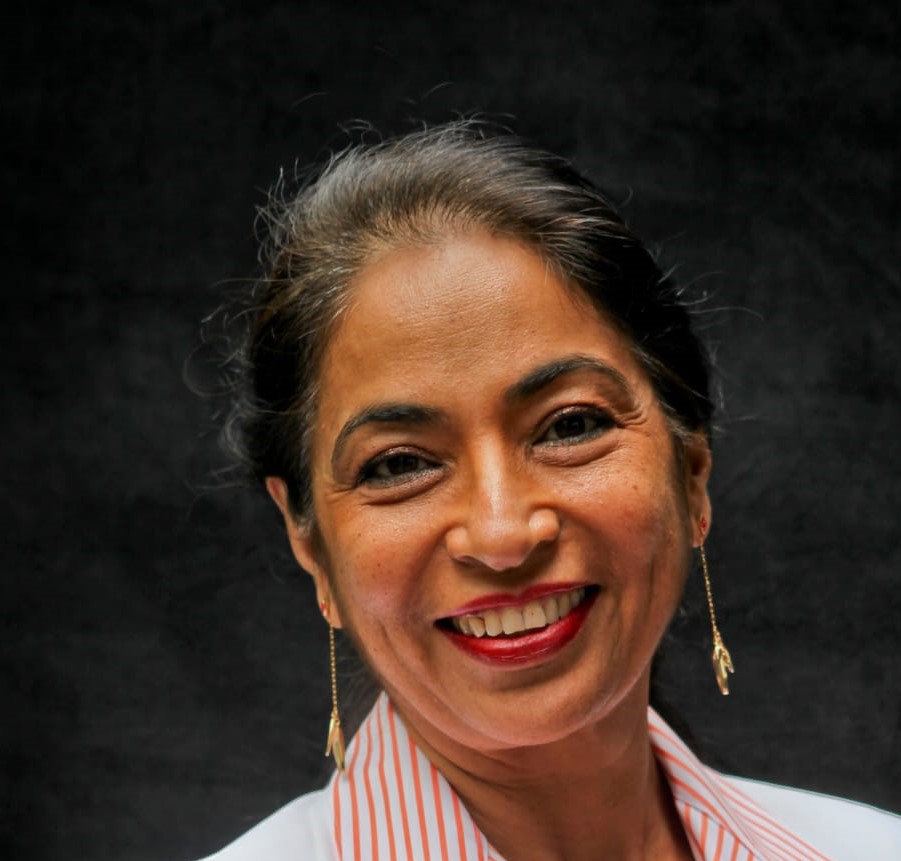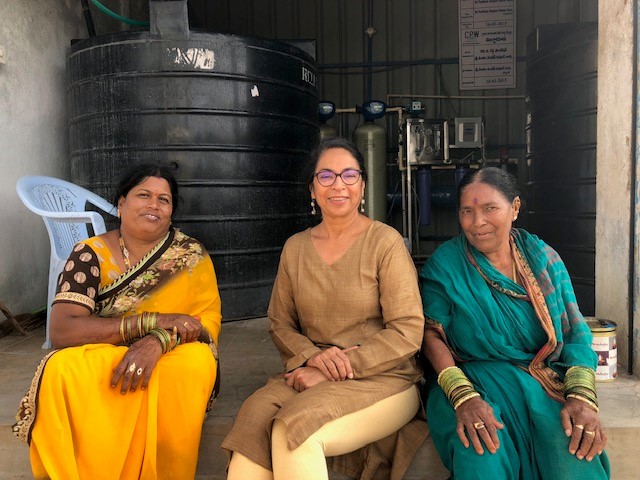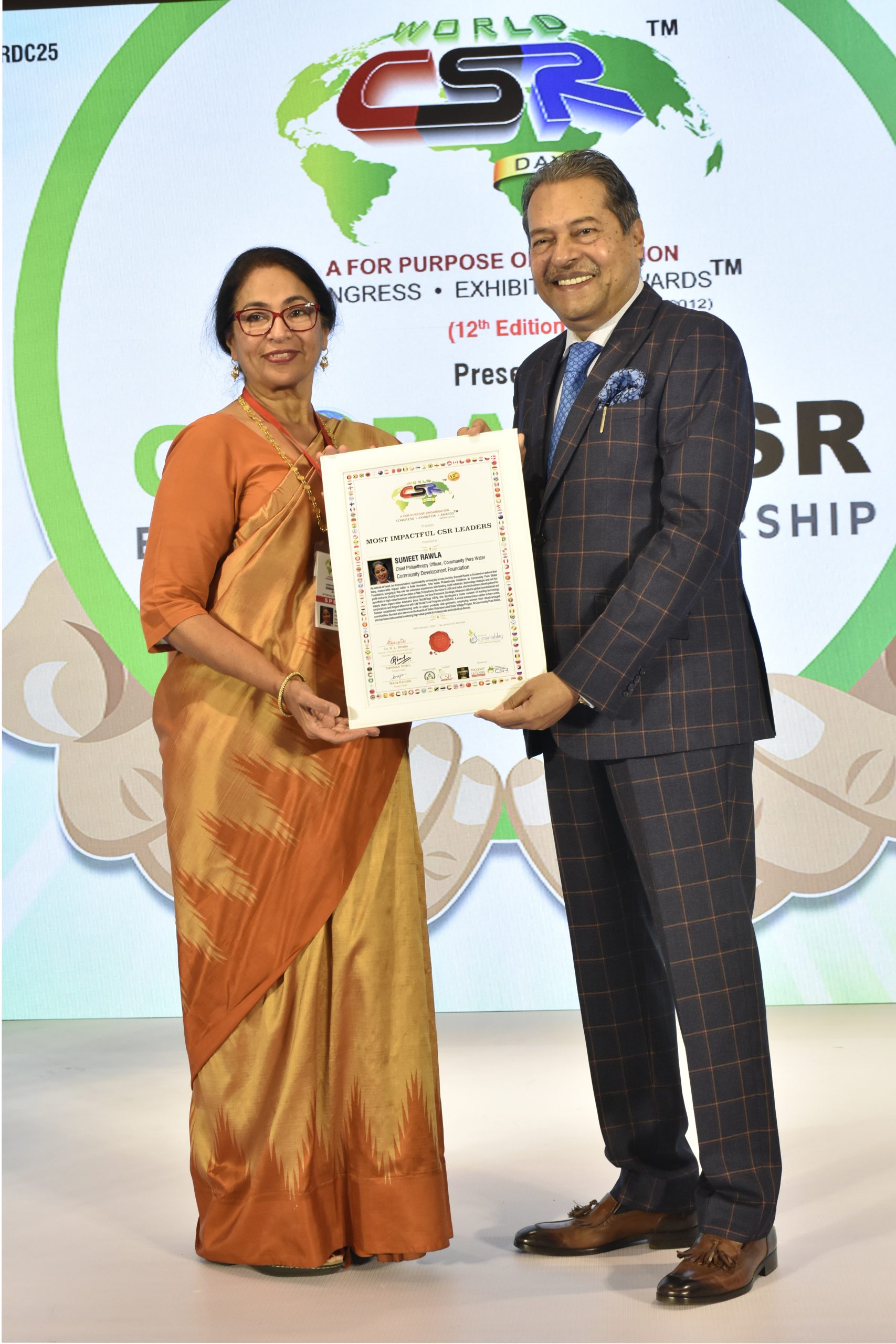(May 7, 2024) An activist at heart, be it conservation, sustainability, or inequity across society, Sumeet Rawla is focused on actions that bring measurable impact within a finite time span.
It is this zeal that makes her the right person to drive change. Especially as the Philanthropic Initiatives Lead at Community Pure Water Foundation, she brings both passion and expertise to the role that will help millions access pure drinking water, which is still a pipe dream for many in rural India.
During her two decades at Tata Consultancy Services in the USA and India, Sumeet Rawla led new business development for a portfolio of high-value business-critical systems for large MNCs. She has been recognized among the most impactful CSR leaders by the World CSR Day forum for her services towards sustainable, safe water, a part of UN Sustainable Development Goal 6 for 2023 and 2024.

Sumeet Rawla
A holistic childhood
Growing up in Hyderabad amidst a very science-oriented community (her father was the Director General of the Council of Scientific and Industrial Research (CSIR)), Sumeet recalls it as a very quiet and engaging time. “All our neighbors were scientists from different parts of the country, and visitors included the likes of the legendary Jonas Salk and Nobel laureates. So, it felt like an extended family where we celebrated many festivals and cultures across India,” she tells Global Indian.
The happy-go-lucky childhood, which was both cosmopolitan and cultural in outlook, where Sumeet was exposed to the classical arts and local culture while inculcating an understanding of scientific temper, shaped her outlook towards life.
Looking back, she says that she misses the syncretism of life, where different religions and diversity in culture were celebrated while the onus was always on the community to thrive as one.
Moving abroad
In 2000, Sumeet decided to move to the US to work as she felt a need to expand her horizons and was looking for a change in life. The move was not too difficult, and she recalls, “The transition was not very challenging, as I traveled to the US earlier to meet my family. Also, having worked in the technology field, I felt that the opportunities there would be better, which they were.”

Sumeet Rawla with Mirjaguda operators
While women were starting to be a part of the larger workforce, the late 1990s and early 2000s were still times when not many women could get leadership positions. Sumeet nods in agreement and adds, “When I studied at Osmania University Campus, there were three women and 105 men in my class! In the work sphere, women were never leaders, and especially not outspoken women!”
In the US, she worked with different companies and across sectors in various roles, gaining a wealth of experience. Working on new technologies, disruptive innovations, and developing strategic alliances were all skills she built over her various roles that gave her a unique standpoint and ability to provide solutions to a wide range of problems.
In 2018, Sumeet Rawla started working with Community Pure Water (CPW), a foundation that helps provide drinking water in 500+ villages across six states of India. Working with rural communities to make safe drinking water affordable, accessible, and available 24/7, the foundation distributes over 9 million liters of water every month.
She explains, “We establish water purification plants that are accessible to everyone. This simple intervention has a fundamental effect as it protects people from illness. As a result, medical expenditure goes down while people’s ability to work increases. As the onus of fetching water is mostly on young girls, it results in fewer young girls dropping out of school.”
Sumeet works pro-bono and provides her expertise and energy to help people gain access to a basic necessity: clean drinking water. The social sector being a key interest, she is also on the board of other initiatives, including the Solar Village Project and Video Volunteers.

Working towards change
CPW brings about change by providing solutions that are simple and hyperlocal. Their operating model is simple and efficient; they work with the village panchayat, which provides the water source (ponds, reservoirs, or wells) in the area and allocates them a space to build the water purification center.
Sumeet Rawla explains, “What we do is so rewarding that it is worth all the challenges; once a purification center is established, we begin to see the cycle of impact in six months. The children are back in school, there are fewer illnesses, and the quality of life improves for the entire community.”
Helping make clean water available and affordable, the foundation works hard to ensure that all the stakeholders, from the villagers to the panchayat, are on board with their interventions. Through a series of interactive sessions and educational programs, they instilled a culture of hygiene and health consciousness, catalyzing a paradigm shift in behavior within these rural communities.
A zest for life
As someone who has spent more than two decades in the US, Sumeet has had a ringside view of the changes the Indian diaspora has seen over time. “There is an improved understanding and acceptance for the Indian community now,” she shares and adds. “It is easier now for us to assimilate into society. Today, Indians are participating as equals in everything. There is widespread representation in local leadership and politics too, which is remarkable.”
While not drafting plans to increase accessibility to water in rural India, she loves to spend time with her two sons, Shvet (VP Partnerships at Bolt) and Swayam (Director, Customer Success at Symplr), and indulging in her love for reading, traveling, and spending time with nature.
Apart from expanding the scope and reach of CPW and ensuring that quality water is accessible to all, her focus also remains on her other passions: her book club and encouraging people to vote!
Follow CPW on their website.




